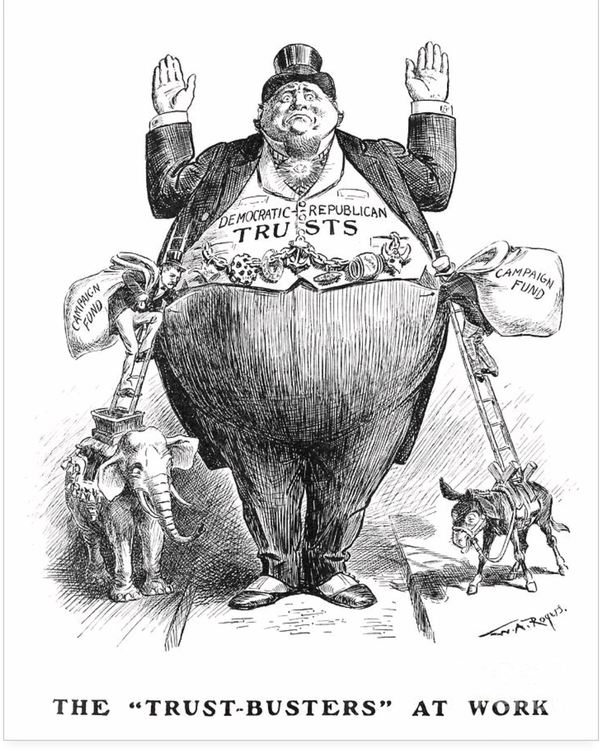The Pro-Monarchy Google Ruling
Friends,
On Monday, Judge Amit Mehta, who has already found Google to be an illegal monopolist, issued a long, seemingly elegant opinion that explains why Google’s moat building and controlling conduct is a problem. And then he largely concluded there’s not much to be done about it, though he cloaks it in enough language that you might think there's muscle there.
The government said Google should be forced to divest Chrome or Android. Mehta called that too risky and messy. Sure, he barred exclusive default-placement deals, but astonishingly allowed Google to still pay billions to keep prime placement on Apple devices. He ordered some data-sharing with rivals, but not the crown jewels of ad data. Alphabet’s stock jumped, because through all the thicket of words, the essence was clear: go on monopolizing, Google. Data monarchs are safer.
If you were mad when SCOTUS gave POTUS immunity, you should be furious when Judge Mehta recognizes lawbreaking and then shrugs, because using the obvious remedy would be too messy.
The dangers of concentrated power in data have never been greater. Defaults are critically important during the growth of AI, but if Mehta's ruling stands, Google, which already filters and sorts what we see and hear, and is racing to dominate AI, got told to tidy up its contracts and share a bit of data but keep on with its power hoarding. That’s how unaccountable power compounds.
This summer, I found myself struggling to follow the news, because so much of it felt like bad entertainment. There's too much talk of crisis in terms of personality, the personality of Trump, the personality of his henchmen, the personality of MAGA. There's an effort to make all of these monsters, ogres, outside, other, alien, invaders on a safe comfortable world.
But they are results of concentration of power, not weird invaders.
The root issue today is too much concentrated power, and unless we confront it, we can't confront the corruption that is rotting our democracy. Too much power in the Presidency, which allows the corruption of Congress, too much power in the federal government, which allows the enervation of local democracy, and far, far too much power in a few big AI companies, building off their power in data and advertising technology. We allow that power to isolate and dominate. And if we refuse to confront the structures of power, we’ll keep manufacturing new monsters, and we'll have a lots of fairy tales, but not the change we need.
What if, instead of fretting about the “messiness” of breaking up a monarch, the court embraced the older American wisdom Justice William O. Douglas articulated in 1948:
“For all power tends to develop into a government in itself. Power that controls the economy should be in the hands of elected representatives of the people, not in the hands of an industrial oligarchy. Industrial power should be decentralized—scattered into many hands—so that the fortunes of the people will not be dependent on the whim or caprice…of a few self-appointed men.”
Clinging to cloaks of legalism instead of confronting power, that's a bad habit recently among Democratic Party elites too. There are plenty of anti-Trumpers who like the concentration so long as their side holds it. But refusing to directly address power is bad for democracy and bad politics.
Seeing the problem as one of power means we don’t just gripe about SCOTUS and POTUS; we also call out legal gymnastics—like this week’s Google ruling—and demand structural remedies: breakups, neutral-platform rules, and campaign-finance reform, more experiments in local democracy, more energy at the city and state level, less nervousness around the data oligarchs.
More soon,
—Zephyr
I was away for the summer, working on longer writing projects and doing some theater. Hope to write more now!


